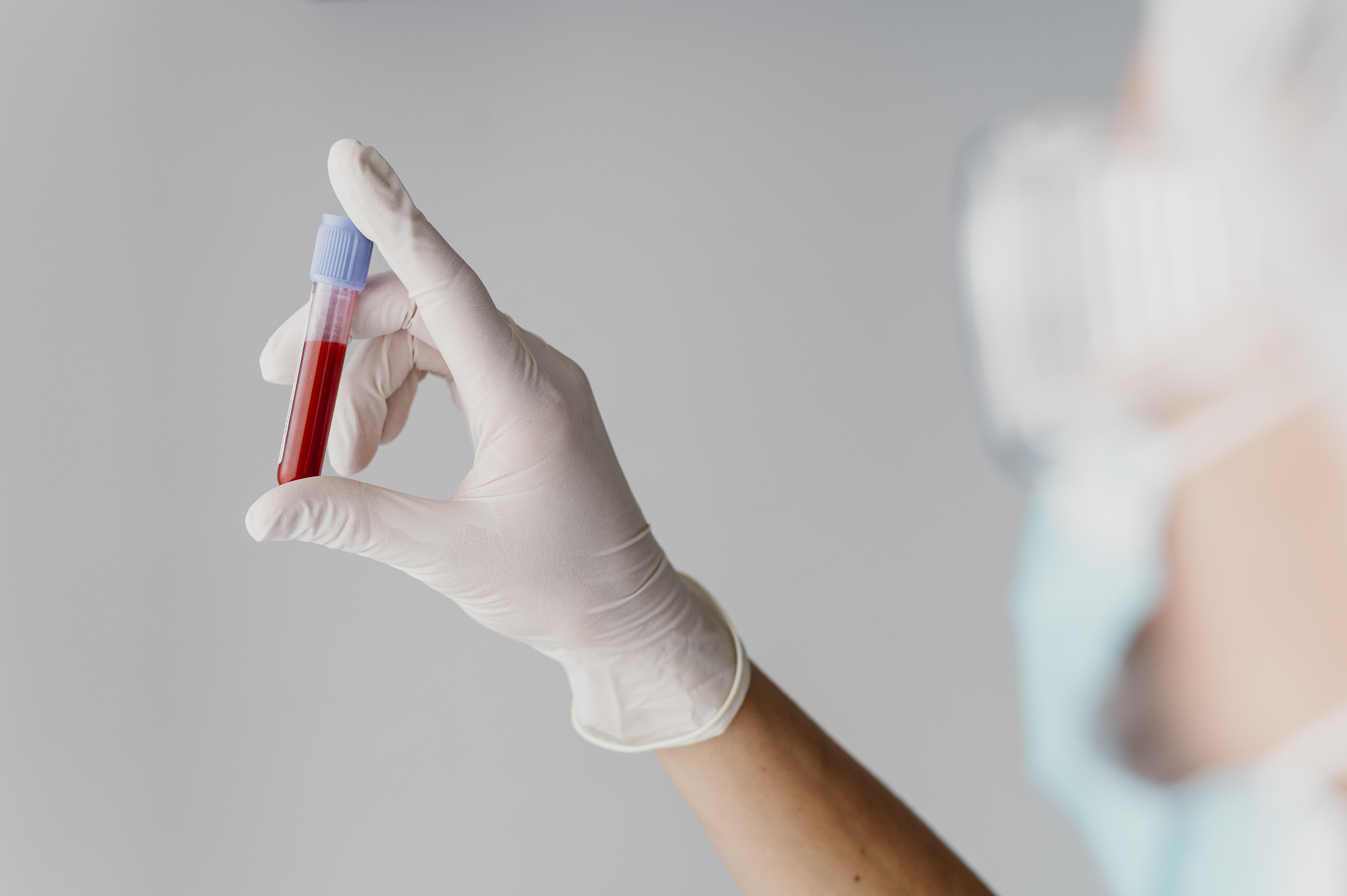Definisi
Mitokondria merupakan salah satu bagian dari sel yang berperan dalam menghasilkan energi yang diperlukan oleh tubuh. Antimitochondrial antibody (AMA) merupakan salah satu bentuk respon autoimun yang terjadi ketika tubuh menyerang sel, jaringan dan organ sendiri. Pada umumnya sistem imunitas tubuh akan menyerang benda asing seperti parasit atau virus dengan antibodi yang dibentuk tubuh untuk mempertahankan imunitas tubuh. Pada kondisi autoimun, sistem imun tubuh akan menyerang tubuh sendiri seperti terjadi infeksi.
Pemeriksaan AMA dilakukan dengan mengidentifikasi adanya peningkatan antibodi di dalam darah. Pemeriksaan ini biasanya digunakan dalam membantu mendeteksi kondisi autoimun seperti primary biliary cholangitis (PBC) atau yang sebelumnya dikenal sebagai sirosis biliari primer.
Anti Smooth Muscle Antibody (ASMA) pertama kali ditemukan pada tahun 1965 pada pasien dengan kondisi hepatitis kronis aktif. Serupa dengan AMA, kondisi autoantibodi seperti ASMA akan menyerang sel dan jaringan dari bagian tubuh karena dianggap benda asing dan memberitahukan sistem tubuh untuk membunuh benda asing tersebut. ASMA akan menyerang jaringan otot halus melalui beberapa bagian tubuh. ASMA sendiri dapat ditemukan pada kondisi medis seperti hepatitis, penyakit infeksi, gangguan rheumatik dan kanker. Target paling umum pada ASMA sendiri pada jaringan otot halus di hati yang dapat menyebabkan penyakit hepatitis automiun dan PBC.
Indikasi
Pemeriksaan ini disarankan oleh dokter untuk memastikan kembali diagnosis autoimun terutama PBC atau ketika pemeriksaan panel organ hati menunjukkan hasil tidak normal. PBC disebabkan oleh sistem imun yang menyerang kelenjar empedu pada organ hati sehingga dapat menyebabkan peradangan yang dapat berakibat pada gagal organ hati. Kondisi ini juga dapat meningkatkan risiko dari kanker hati.
Beberapa gejala dari PBC, seperti:
- Kulit gatal-gatal (pruritus)
- Jaundice (kekuningan pada kulit dan bagian putih mata)
- Kelelahan
- Nyeri pada bagian atas kanan perut
- Pembesaran organ hati
Kontraindikasi
Pemeriksaan Antimitochondrial Antibody (AMA) dan Anti Smooth Muscle Antibody (ASMA) dengan metode Indirect Immunofluorescence (IF) dapat dianggap aman dan risiko terkait sedang. Tidak ada kontraindikasi khusus terkait pemeriksaan ini.
Bila Anda sebelumnya telah melakukan pemeriksaan darah, pemeriksaan ini serupa dengan proses pengambilan sampel darah. Diskusikan dengan dokter terkait prosedur pemeriksaan yang akan dilakukan.
Persiapan Sebelum Pemeriksaan
Tidak ada persiapan khusus sebelum melakukan pemeriksaan Antimtochondrial Antibody (AMA) dan Anti Smooth Muscle Antibody (ASMA) dengan metode Indirect Immunofluorescence (IF). Pemeriksaan ini tidak mewajibkan Anda puasa sebelumnya kecuali Anda juga melakukan pemeriksaan lain yang mengharuskan Anda berpuasa sebelumnya.
Anda dapat berkonsultasi dengan dokter terkait obat-obatan yang dikonsumsi sebelum melakukan pengujian. Informasikan pada dokter bila Anda mengalami beberapa kondisi tertentu sebelum pemeriksaan seperti menstruasi, kehamilan atau kondisi medis lainnya. Diskuskan dengan dokter terkait obat rutin yang Anda konsumsi dan yang perlu dihentikan sebelum pemeriksaan.
Prosedur Pemeriksaan
Pemeriksaan Antimitochondrial Antibody (AMA) dan Anti Smooth Muscle Antibody (ASMA) dengan metode Indirect Immunofluorescence (IF) merupakan pemeriksaan darah sederhana dengan sampel darah. Petugas laboratorium akan membersihkan lengan Anda dengan kapas alkohol dan mengambil sedikit darah Anda dari pembuluh darah vena di lengan menggunakan spuit steril. Anda akan mungkin merasakan nyeri sedang ketika proses pemasukkan jarum atau ketika darah anda diambil. Anda mungkin akan merasakan seperti tertusuk atau rasa terbakar. Relaksasikan lengan anda untuk mengurangi rasa nyeri. Pada bayi, pengambilan darah dilakukan pada tumit.
Selanjutnya, darah akan dimasukan ke dalam tabung darah dan diperiksa oleh petugas laboratorium pada mesin khusus. Ketika petugas sudah selesai mengambil sampel darah, Anda perlu memberikan tekanan pada area tersebut untuk mencegah memar atau pembengkakan. Risiko pemeriksaan dalam darah sangat kecil. Beberapa orang merasakan nyeri, pusing, dan memar saat pengambilan darah. Namun, hal ini biasanya hilang dengan cepat.
Nilai Normal dan Abnormal
Hasil pemeriksaan ditunjukkan dengan nilai positif atau negatif.
Pada nilai normal pemeriksaan AMA maupun ASMA menunjukkan nilai negatif dan nilai abnormal menunjukkan nilai positif.
Hasil dan Saran (Pemeriksaan Lanjutan)
Pada pemeriksaan antimitochondrial antibody, titer atau kadar AMA yang tinggi dalam darah mengindikasikan bahwa kemungkinan besar penyebab gejala dan/atau kerusakan hati adalah PBC. Namun hasil ini tidak berhubungan dengan tingkat keparahan gejala PBC.
AMA negatif atau berarti bahwa kemungkinan besar gejala yang dialami seseorang disebabkan oleh hal lain selain PBC, tetapi hasil tersebut tetap memungkinkan adanya penyakit PBC. Sekitar 5-10% dari mereka yang menderita PBC tidak memiliki hasil pemeriksaan AMA yang meningkat signifikan.
Pada pemeriksaan anti-smooth muscle antibody, hasil tes ASMA positif berarti ditemukan dalam sampel darah Anda hepatitis autoimun tipe 1. Tetapi pemeriksaan ini tidak dapat dijadikan landasan diagnosis. Dokter akan menyarankan biopsi untuk memastikan diagnosis.
Kadar ASMA yang meningkat merupakan tanda kondisi lain, seperti:
- PBC
- Hepatitis C
- Jenis kanker tertentu
Sedangkan pada hasil tes ASMA negatif berarti tidak ditemukan antibodi dalam sampel darah dan tidak menderita hepatitis autoimun tipe 1.
Konsultasikan ke Dokter yang Tepat
Bila hasil pemeriksaan Antimitochondrial Antibody (AMA) dan Anti Smooth Muscle Antibody (ASMA) dengan metode Indirect Immunofluorescence (IF) Anda menunjukkan hasil tidak normal, Anda dapat berkonsultasi dengan dokter spesialis penyakit dalam untuk mendapatkan diagnosis, pemeriksaan lebih lanjut dan terapi yang sesuai. Dokter mungkin akan menyarankan melakukan pemeriksaan tambahan dan lebih lanjut terkait pemeriksaan apa yang perlu dilakukan sebelum penegakakan diagnosis.
Mau tahu informasi seputar hasil pemeriksaan laboratorium, radiologi, dan lainnya? Cek di sini, ya!
- dr. Monica Salim
Antimitochondrial Antibody Test. (2018). Retrieved 25 July 2023, from https://www.healthline.com/health/antimitochondrial-antibody
Antimitochondrial Antibody and AMA M2. (2021). Retrieved 25 July 2023, from https://www.testing.com/tests/antimitochondrial-antibody-and-ama-m2/
Smooth Muscle Antibody (SMA) Test. (2021). Retrieved 25 July 2023, from https://medlineplus.gov/lab-tests/smooth-muscle-antibody-sma-test/
Anti Smooth Muscle Antibody. (2023). Retrieved 25 July 2023, from https://www.southtees.nhs.uk/services/pathology/tests/anti-smooth-muscle-antibody/








